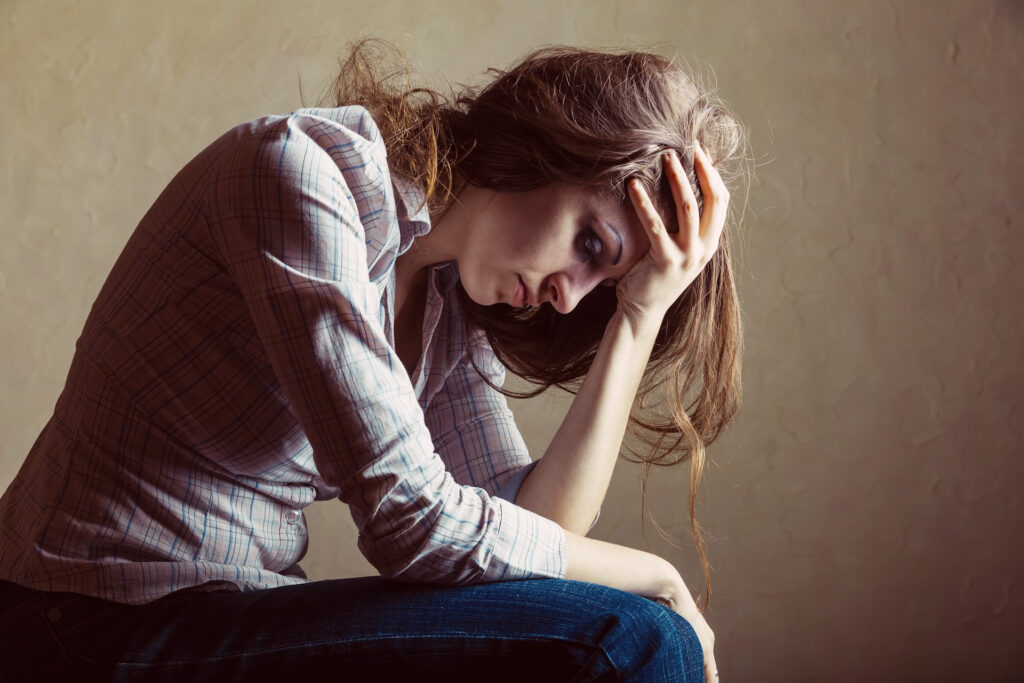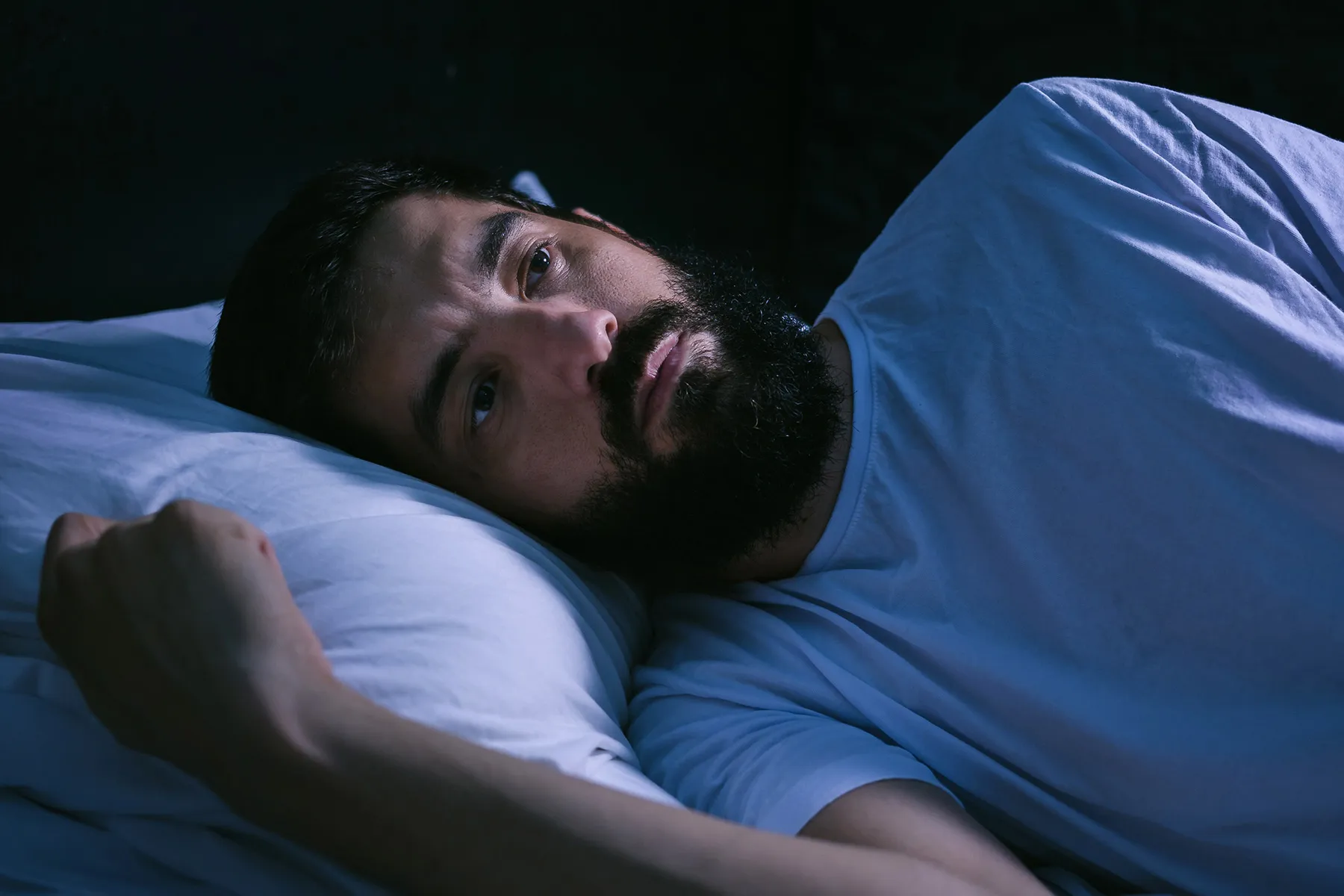
Share this
Depression is a mental state of low mood and aversion to activity. It affects more than 280 million people of all ages (about 3.5% of the global population). Depression affects a person’s thoughts, behavior, feelings, and sense of well-being. Depressed people often experience loss of motivation or interest in, or reduced pleasure or joy from, experiences that would normally bring them pleasure or joy. Depressed mood is a symptom of some mood disorders such as major depressive disorder and dysthymia; it is a normal temporary reaction to life events, such as the loss of a loved one; and it is also a symptom of some physical diseases and a side effect of some drugs and medical treatments. It may feature sadness, difficulty in thinking and concentration and a significant increase or decrease in appetite and time spent sleeping. People experiencing depression may have feelings of dejection or hopelessness and may experience suicidal thoughts. It can either be short term or long term.
Contributing factors

Life events
Adversity in childhood, such as bereavement, neglect, mental abuse, physical abuse, sexual abuse, or unequal parental treatment of siblings can contribute to depression in adulthood. Childhood physical or sexual abuse in particular significantly correlates with the likelihood of experiencing depression over the survivor’s lifetime.
Life events and changes that may cause depressed mood include (but are not limited to): childbirth, menopause, financial difficulties, unemployment, stress (such as from work, education, military service, family, living conditions, marriage, etc.), a medical diagnosis (cancer, HIV, diabetes, etc.), bullying, loss of a loved one, natural disasters, social isolation, rape, relationship troubles, jealousy, separation, or catastrophic injury. Adolescents may be especially prone to experiencing a depressed mood following social rejection, peer pressure, or bullying.
Personality
Depression is associated with low extraversion,[17] and people who have high levels of neuroticism are more likely to experience depressive symptoms and are more likely to receive a diagnosis of a depressive disorder.[18]
Side effect of medical treatment
It is possible that some early-generation beta-blockers induce depression in some patients, though the evidence for this is weak and conflicting. There is strong evidence for a link between alpha interferon therapy and depression. One study found that a third of alpha interferon-treated patients had developed depression after three months of treatment. (Beta interferon therapy appears to have no effect on rates of depression.) There is moderately strong evidence that finasteride when used in the treatment of alopecia increases depressive symptoms in some patients. Evidence linking isotretinoin, an acne treatment, to depression is strong. [19] Other medicines that seem to increase the risk of depression include anticonvulsants, antimigraine drugs, antipsychotics and hormonal agents such as gonadotropin-releasing hormone agonist[20]
Substance-induced
Several drugs of abuse can cause or exacerbate depression, whether in intoxication, withdrawal, and from chronic use. These include alcohol, sedatives (including prescription benzodiazepines), opioids (including prescription pain killers and illicit drugs such as heroin), stimulants (such as cocaine and amphetamines), hallucinogens, and inhalants.[21]
Non-psychiatric illnesses
Depressed mood can be the result of a number of infectious diseases, nutritional deficiencies, neurological conditions,[22] and physiological problems, including hypoandrogenism (in men), Addison’s disease, Cushing’s syndrome, pernicious anemia, hypothyroidism, hyperparathyroidism, Lyme disease, multiple sclerosis, Parkinson’s disease, chronic pain, stroke,[23] diabetes,[24] cancer,[25] and HIV.
Psychiatric syndromes
A number of psychiatric syndromes feature depressed mood as a main symptom. The mood disorders are a group of disorders considered to be primary disturbances of mood. These include major depressive disorder (commonly called major depression or clinical depression) where a person has at least two weeks of depressed mood or a loss of interest or pleasure in nearly all activities; and dysthymia, a state of chronic depressed mood, the symptoms of which do not meet the severity of a major depressive episode. Another mood disorder, bipolar disorder, features one or more episodes of abnormally elevated mood, cognition, and energy levels, but may also involve one or more episodes of depression.[26] When the course of depressive episodes follows a seasonal pattern, the disorder (major depressive disorder, bipolar disorder, etc.) may be described as a seasonal affective disorder.
Outside the mood disorders: borderline personality disorder often features an extremely intense depressive mood; adjustment disorder with depressed mood is a psychological response to an identifiable event or stressor, in which the resulting emotional or behavioral symptoms are significant but do not meet the criteria for a major depressive episode;[27] and posttraumatic stress disorder, a mental disorder that sometimes follows trauma, is commonly accompanied by depressed mood.[28]
Inflammation
There is evidence for a link between inflammation and depression.[29] Inflammatory processes can be triggered by negative cognitions or their consequences, such as stress, violence, or deprivation. Thus, negative cognitions can cause inflammation that can, in turn, lead to depression.[[dubious – discuss] In addition, there is increasing evidence that inflammation can cause depression because of the increase of cytokines, setting the brain into a “sickness mode”.[32] Classical symptoms of being physically sick, such as lethargy, show a large overlap in behaviors that characterize depression. Levels of cytokines tend to increase sharply during the depressive episodes of people with bipolar disorder and drop off during remission. Furthermore, it has been shown in clinical trials that anti-inflammatory medicines taken in addition to antidepressants not only significantly improves symptoms but also increases the proportion of subjects positively responding to treatment.[34]
Inflammations that lead to serious depression could be caused by common infections such as those caused by a virus, bacteria or even parasites.
Historical legacy
Researchers have begun to conceptualize ways in which the historical legacies of racism and colonialism may create depressive conditions.[36][37]
Measures
Measures of depression include, but are not limited to: Beck Depression Inventory-11 and the 9-item depression scale in the Patient Health Questionnaire (PHQ-9). Both of these measures are psychological tests that ask personal questions of the participant, and have mostly been used to measure the severity of depression. The Beck Depression Inventory is a self-report scale that helps a therapist identify the patterns of depression symptoms and monitor recovery. The responses on this scale can be discussed in therapy to devise interventions for the most distressing symptoms of depression.
Theories
Schools of depression theories include:
- Cognitive theory of depression
- Tripartite Model of Anxiety and Depression
- Behavioral theories of depression
- Evolutionary approaches to depression
- Biology of depression
- Epigenetics of depression
Management
Depressed mood may not require professional treatment, and may be a normal temporary reaction to life events, a symptom of some medical condition, or a side effect of some drugs or medical treatments. A prolonged depressed mood, especially in combination with other symptoms, may lead to a diagnosis of a psychiatric or medical condition which may benefit from treatment.
The UK National Institute for Health and Care Excellence (NICE) 2009 guidelines indicate that antidepressants should not be routinely used for the initial treatment of mild depression, because the risk-benefit ratio is poor.
Physical activity has a protective effect against the emergence of depression in some people.
There is limited evidence suggesting yoga may help some people with depressive disorders or elevated levels of depression, but more research is needed.
Reminiscence of old and fond memories is another alternative form of treatment, especially for the elderly who have lived longer and have more experiences in life. It is a method that causes a person to recollect memories of their own life, leading to a process of self-recognition and identifying familiar stimuli. By maintaining one’s personal past and identity, it is a technique that stimulates people to view their lives in a more objective and balanced way, causing them to pay attention to positive information in their life stories, which would successfully reduce depressive mood levels.[43]
There is limited evidence that continuing antidepressant medication for one year reduces the risk of depression recurrence with no additional harm.[44] Recommendations for psychological treatments or combination treatments in preventing recurrence are not clear.
Epidemiology
Depression is the leading cause of disability worldwide, the United Nations (UN) health agency reported, estimating that it affects more than 300 million people worldwide – the majority of them women, young people and the elderly. An estimated 4.4 percent of the global population has depression, according to a report released by the UN World Health Organization (WHO), which shows an 18 percent increase in the number of people living with depression between 2005 and 2015.
Depression is a major mental-health cause of disease burden. Its consequences further lead to significant burden in public health, including a higher risk of dementia, premature mortality arising from physical disorders, and maternal depression impacts on child growth and development.[48] Approximately 76% to 85% of depressed people in low- and middle-income countries do not receive treatment;[49] barriers to treatment include: inaccurate assessment, lack of trained health-care providers, social stigma and lack of resources.[4]
The stigma comes from misguided societal views that people with mental illness are different from everyone else, and they can choose to get better only if they wanted to.[50] Due to this more than half of the people with depression do not receive help with their disorders. The stigma leads to a strong preference for privacy.
The World Health Organization has constructed guidelines – known as The Mental Health Gap Action Programme (mhGAP) – aiming to increase services for people with mental, neurological and substance-use disorders.[4] Depression is listed as one of conditions prioritized by the programme. Trials conducted show possibilities for the implementation of the programme in low-resource primary-care settings dependent on primary-care practitioners and lay health-workers.[51] Examples of mhGAP-endorsed therapies targeting depression include Group Interpersonal Therapy as group treatment for depression and “Thinking Health”, which utilizes cognitive behavioral therapy to tackle perinatal depression.[4] Furthermore, effective screening in primary care is crucial for the access of treatments. The mhGAP adopted its approach of improving detection rates of depression by training general practitioners. However, there is still weak evidence supporting this training.
As of 2021, Iranians were one of the most depressed peoples on Earth, with the government reporting a 70% depression rate.
History
The term depression was derived from the Latin verb deprimere, “to press down”.[58] From the 14th century, “to depress” meant to subjugate or to bring down in spirits. It was used in 1665 in English author Richard Baker’s Chronicle to refer to someone having “a great depression of spirit”, and by English author Samuel Johnson in a similar sense in 1753.
In Ancient Greece, disease was thought due to an imbalance in the four basic bodily fluids, or humors. Personality types were similarly thought to be determined by the dominant humor in a particular person. Derived from the Ancient Greek melas, “black”, and kholé, “bile”,[60] melancholia was described as a distinct disease with particular mental and physical symptoms by Hippocrates in his Aphorisms, where he characterized all “fears and despondencies, if they last a long time” as being symptomatic of the ailment.[61]
During the 18th century, the humoral theory of melancholia was increasingly being challenged by mechanical and electrical explanations; references to dark and gloomy states gave way to ideas of slowed circulation and depleted energy.[62] German physician Johann Christian Heinroth, however, argued melancholia was a disturbance of the soul due to moral conflict within the patient.
In the 20th century, the German psychiatrist Emil Kraepelin distinguished manic depression. The influential system put forward by Kraepelin unified nearly all types of mood disorder into manic–depressive insanity. Kraepelin worked from an assumption of underlying brain pathology, but also promoted a distinction between endogenous (internally caused) and exogenous (externally caused) types.[63]
Other psycho-dynamic theories were proposed. Existential and humanistic theories represented a forceful affirmation of individualism.[64] Austrian existential psychiatrist Viktor Frankl connected depression to feelings of futility and meaninglessness.[65] Frankl’s logotherapy addressed the filling of an “existential vacuum” associated with such feelings, and may be particularly useful for depressed adolescents.[66][67]
Researchers theorized that depression was caused by a chemical imbalance in neurotransmitters in the brain, a theory based on observations made in the 1950s of the effects of reserpine and isoniazid in altering monoamine neurotransmitter levels and affecting depressive symptoms.[68] During the 1960s and 70s, manic-depression came to refer to just one type of mood disorder (now most commonly known as bipolar disorder) which was distinguished from (unipolar) depression. The terms unipolar and bipolar had been coined by German psychiatrist Karl Kleist.
In July 2022, British psychiatrist Joanna Moncrieff, also psychiatrist Mark Horowtiz and others proposed in a study on academic journal Molecular Psychiatry that depression is not caused by a serotonin imbalance in the human body, unlike what most of the psychiatry community points to, and that therefore anti-depressants do not work against the illness. However, such study was met with criticism from some psychiatrists, who argued the study’s methodology used an indirect trace of serotonin, instead of taking direct measurements of the molecule. Moncrieff said that, despite her study’s conclusions, no one should interrupt their treatment if they are taking any anti-depressan

Depression causes feelings of sadness and/or a loss of interest in activities
American Psychiatric Association defines major depressive disorder (depression) as a common and serious medical illness that negatively affects how one feels, thinks and acts. Depression causes feelings of sadness and/or a loss of interest in activities once enjoyed. It can lead to a variety of emotional and physical problems and decrease a person’s ability to function at work and home. Depression can occur at any age.
Depression causes significant distress or impairment in social, occupational or other important areas of functioning. With appropriate medical treatment, therapy and emotional support, 70 to 80 percent of patients can achieve resolution or significant reduction in symptoms.
The causes of depression could be a combination of different factors, such as genetics, chronic medical or neurological conditions and other stressors.
- Genetics: First-degree relatives of depressed individuals are about three times as likely to develop depression as the general population.
- Stressors: Stressors can be personal, familial, social and environmental, such as
- Chronic pain
- Medical illness
- Psychosocial stress
- Lack of sleep
- Impaired social supports
- Caregiver burden
- Loneliness
- Bereavement
- Negative life events
- Loss of a loved one
- Harassment
- Bullying
- Alcohol and drug abuse
- Certain medications
- Abuse
- Poor parent-child relationship
- Traumatic life events
- Major life changes, such as divorce, loss of employment
- Neuroendocrine abnormalities and neurodegenerative diseases: Possible abnormalities of the neurotransmitter systems may cause depression. Neurodegenerative diseases (especially Alzheimer’s and Parkinson’s), stroke, multiple sclerosis, seizure disorders, cancer, macular degeneration and chronic pain have been associated with higher rates of depression.
- Vascular causes:
- Higher incidence of depression following a stroke
- Higher prevalence of ischemic brain changes in older adults with depression
- Association between depression and heart disease and depression and diabetes
- Higher rates of depression among patients with vascular dementia than those with Alzheimer’s disease
What are the complications?
Long-standing depression can cause the following complications in life:
- Increased risk of domestic abuse, fights, estrangement and divorces
- Loss of job
- Increased suicide risk
- Increased risk of other psychiatric disorders
- Violence
How Major Depressive Disorder Might Affect Your Sleep
Sleep problems may be one of the first symptoms of major depressive disorder — a serious, but treatable mental health problem, more commonly known as depression.
Not only a symptom of depression, some sleep problems, like insomnia, may also help cause depression. Up to 20% of people who have trouble falling or staying asleep — that’s insomnia — eventually develop depression. In one major study, people with insomnia were five times more likely to get depression than others.
This link between insomnia and depression can lead to a painful cycle in which depression leads to sleep problems, which in turn worsen your depression.
What Is Major Depressive Disorder?
Depression, which doctors may call major depressive disorder, is a treatable mental illness. You feel sad more often than usual, and you may lose interest in activities you once enjoyed. It can lead to problems in your work and home life as well as other emotional and even physical problems. Other symptoms may include:
- Pacing, handwringing, and other restless activities
- Slowed speech and movements that others notice
- Trouble focusing on tasks or making decisions
- Low energy and tiredness
- Changes in appetite
- Weight loss or gain unrelated to dieting
- Feelings of guilt or worthlessness
- Thoughts of death or suicide
If you notice symptoms that last more than 2 weeks, it may be time to talk to your health care provider.
How Do Sleep Problems Relate to Depression?
Most people with depression have sleep problems of some sort. It’s so common in fact that many doctors hesitate to diagnose depression in people who don’t report sleep problems.
It goes the other way, too. Not only does depression often cause sleep troubles, but sleep troubles can also cause depression. This can make it hard for you or your doctor to figure out which problem came first.
These are the most common sleep problems linked to depression:
Insomnia. This is when you have trouble either falling asleep or staying asleep long enough to get proper rest. Short-term insomnia lasts a few days or weeks. Most often, stress causes it. Chronic insomnia brings this kind of sleep trouble three or more times a week for 3 months or longer.
Hypersomnia. It’s when you’re often very tired during the day. You may feel an overwhelming need to nap at unusual times like at a meal, at work, or during a conversation. You may sleep for long hours and find it hard to wake up. You may also feel anxious, irritable, low energy, and foggy when you’re awake.
Obstructive sleep apnea. With this condition, heavy snoring cuts off your breathing when you sleep. This can wake you up, sometimes many times a night. Though you might not remember waking up, you may be groggy and grouchy the next day from lack of sleep. Excess body weight can lead to sleep apnea, but there are other causes too. A doctor can test to see if you have it and help you manage and treat it.
By far, insomnia is the most common sleep problem linked to depression. Around 3 out of 4 adults who have depression also have insomnia. About 1 in 5 people with depression have obstructive sleep apnea. About 1 in 7 have hypersomnia.
Whether your sleep problems led to depression or the other way around, it’s a good idea to deal with both problems head on with the help and guidance of your health care provider.
What Can You Do?
It helps to understand how sleep trouble and depression interact. The sooner you spot the symptoms of either problem, the sooner you can get the treatment you need to get you back on your feet. Talk to your doctor if you have:
- Trouble falling or staying asleep
- Regular daytime tiredness
- Pain or discomfort that prevents good sleep
- Symptoms of depression like feelings of helplessness, hopelessness, and other symptoms listed above that last longer than a couple of weeks
Call 911 or the National Suicide Prevention Lifeline at 1-800-273-TALK if you or someone you know is in crisis or having thoughts of suicide.
How Do You Treat Depression-Linked Sleep Problems?
You may need separate treatment for both depression and sleep problems.
Common medications for depression like selective serotonin reuptake inhibitors may help with mood and other depression symptoms, but they might not improve your sleep. Other treatments for depression include various types of talk therapy and medications like antipsychotics. But lingering sleep problems could make these treatments less effective.
A specially designed talk therapy called cognitive behavioral therapy for insomnia (CBT-I) shows promise in treating insomnia. Some evidence suggests that when combined with depression treatment, CBT-I helps improve sleep problems in people with depression and lessens the chance of depression in the future.
Continuous positive airway pressure (CPAP) devices for sleep apnea can restore good sleep, which can lessen the chance of depression. That’s a big deal since people with sleep apnea are five times more likely to develop depression than others.
Unpacking the treatment options for depression-linked sleep problems is complex because each individual case can be so different. Talk to your health care provider about your symptoms and the best treatment for you.
What to Expect When You Have Major Depression

Looks can be deceiving. Just ask Melissa Drake.
The 50-year-old author and consultant from Southern California says she had a good job, owned a home, and was raising a wonderful son. On the outside, her life looked pretty good. But nothing could’ve been further from the truth.
On the inside, Drake was in a life-and-death struggle with major depressive disorder — a diagnosis she got at 20 years old.
She admits it’s hard to explain what it’s like living with this condition. “I often describe depression as ‘everything and nothing at once,’ because nothing was really wrong, but everything felt wrong at the same time.”
Drake is not alone in her feelings.
People often say there’s no reason for them to be depressed, but yet they are, says Shawna Newman, MD, a psychiatrist at Lenox Hill Hospital in New York. Some describe major depression as if they are living under a cloud or walking through mud, she adds.
But a closer look uncovers recognizable clues that can signal major depression.
Symptoms of Major Depression
Depression isn’t just simply feeling sad or blue. It’s normal to feel bad over the loss of a job, the death of a loved one, or another sad event, Newman says. The difference is that symptoms of major depression last at least 2 weeks, run very deep, and are not at all normal for you. Here are some changes you might see in yourself if you have major depression:
Sadness, emptiness, or irritable mood. You can’t seem to shake the low mood. You may be irritable too. If you are normally cheerful and you’ve turned consistently cranky, it could be depression.
Loss of interest. You may stay away from friends or loved ones, or stop doing things you used to enjoy. You may lose interest in sex too.
Sleep problems. You may find it hard to fall asleep, or you could toss and turn all night long. On the flip side, you might sleep much more than usual or nap during the day.
Change in eating habits. You could lose interest in food and lose weight, or you might begin to eat too much and gain weight.
Lack of focus. Work may become difficult because you can’t keep your mind on it. Many people describe this as “brain fog.” You could also see this loss of focus in your home life, social life, and personal relationships and conversations.
Changes in energy. Overwhelming weakness and exhaustion may make it difficult or impossible to peel yourself off the couch or get out of bed. In contrast, you may be full of energy and feel fidgety or shift in your chair or bed to try to get comfortable.
Hopelessness. You may have a bleak outlook and not see a way out of your depression.
Thoughts of death. These can range from thoughts like “It would be okay with me if I just didn’t wake up” to active suicidal thoughts or actions, Newman says. Making a plan to kill yourself or taking action (like buying medication for an overdose) takes these thoughts to the next level. It’s not common, but sometimes people with major depressive disorder have homicidal thoughts too.
If you feel like you may harm yourself or others, call 911 right away.
Get professional help if you have symptoms of major depression or are unsure about why you’re feeling so bad. Treatments like medicine, talk therapy, and others can work wonders. Opening up to a therapist often gives people a sense of relief right away, Newman says.
Melissa Drake’s Symptoms of Depression
Drake’s depression at times was severe. “I attempted suicide once, thought about it many other times, was recommended for in-patient hospitalization, and heavily medicated for more than 20 years.” Her most pressing symptoms were extreme exhaustion and a general feeling of sickness (malaise).
For 7 years, Drake was practically bedridden, only getting up to go to work and care for her son as a single parent. “There were times when I didn’t do laundry or chores for months while piles of mail went untouched for years.” Although she spent most of her time in bed, insomnia kept her awake at night and bathing and self-care were nonexistent.
“I was constantly numb, avoiding feelings and stuffing them down with food. I gained weight and ballooned to 307 pounds.”
Drake describes her lowest point to show just how bad her depression was: “I have two dogs that I adore. They are always in bed with me. One day one of them threw up in my bed. As dogs sometimes do, the other dog ate the vomit. I rolled over and went back to sleep. I did not bother to change my sheets — for weeks.”
Drake Finds Peace
The most important decision Drake made was to find a therapist. “It wasn’t until I understood and accepted that I had to do the work to recover and start taking steps toward recovery that I began to get better.”
She wanted someone who didn’t just pay lip service but who held Drake accountable for the better life she said she wanted. “That’s what she did and I am so grateful.”
Once she was out of the woods, Drake says she began to look for things that she enjoyed. She started to dance. “It was the medicine I needed to heal. It grounded me and put me back in my body.”
The year 2020 was especially tough for Drake. But today she’s doing well. “Not perfect by any stretch of the imagination, but I’ve come a long way from being in bed for 7 years. I do work I love; I have a large group of friends; I enjoy dancing and nature,” Drake says. “Even through the tough times, my outlook is generally positive.
Cognitive Remediation for Major Depressive Disorder

Depression, sometimes called major depressive disorder, can hurt your ability to think through even simple daily tasks. Doctors call this decline in thinking skills “cognitive impairment.”
Cognitive remediation can help you deal with this thinking problem. It has helped improve thinking skills in people with schizophrenia, bipolar disorders, ADHD, anorexia nervosa, OCD, and depression.
What Is Major Depressive Disorder?
Major depressive disorder, or simply depression, is a common, treatable, mental health problem. You may feel sad and lose interest in activities you once enjoyed. It can lead to problems in your work and home life as well as other emotional and even physical problems. It could also cause:
- Pacing, handwringing, and other restless activities
- Slowed speech and movements that others notice
- Difficulty focusing on tasks or making decisions
- Changes in appetite
- Weight loss or gain unrelated to dieting
- Sleep problems, either too much or too little
- Low energy and tiredness
- Feelings of guilt or worthlessness
- Thoughts of death or suicide
If you notice symptoms that last more than 2 weeks, it may be time to talk to your health care provider.
What Is Cognition?
Cognition is another word for thinking. More specifically, it is a collection of skills that let you recognize, process, and respond to information. Cognition helps with everything from talking to a friend to buying groceries. There are six main types of cognition:
- Attention: The ability to select a task and stay focused on it or to divide your attention across different tasks in a productive way.
- Executive function: The ability to plan and make decisions, remember information needed to do a task, and respond flexibly.
- Learning and memory: The ability to remember and recall information in both the short and long term.
- Language: The ability to express yourself with the right language and think of the right words.
- Perceptual-motor skills: The ability to make sense of visual and other sensory information, such as sounds and smells, from other people and the world around you.
- Social cognition: The ability to make logical judgments about other people’s intentions and wishes and to control your own emotions in a socially appropriate way.
How Does Major Depressive Disorder Affect Cognition?
Depression can weaken your thinking skills and hurt your ability to:
- Pay attention
- Learn new things
- Remember or think of information
- Process or “make sense of” new information quickly
- Respond to new information in an appropriate way
If you lose some of these abilities, your quality of life may not be as good as it once was. You may not be able to function at work. You also might not respond as well to your treatment and could face a higher risk of another bout with depression.
Some evidence suggests that your thinking skills, once they start to decline from depression, could continue to worsen, even at times when you don’t feel especially depressed.
What Is Cognitive Remediation?
Cognitive remediation is a treatment for some types of cognitive impairment. It gives you a set of tools to improve attention, memory, and other brain functions that can worsen with depression.
The aim is to improve your quality of life and productivity at work or school and in social situations. The strategies in cognitive remediation vary, but you might do some of the following exercises:
- Write in a notebook or daily planner to remind you of important tasks and deadlines
- Break tasks down into a logical set of steps to help you complete them
- Practice attention and thinking exercises to help improve your ability to hold onto and recall information
- Set goals with a health care provider to customize your treatment and track your progress
You can use these strategies on your own, but they tend to work even better with the help of a therapist or support group.
How Does Cognitive Remediation Help Depression?
Cognitive remediation may improve certain thinking skills in some people with major depressive disorder. Though research so far is limited, an analysis of available studies showed that cognitive remediation can lead to improvements in attention, working memory, and overall thinking skills.
It’s hard to tell from the current research whether this therapy helps directly with depression symptoms too. Scientists continue to study the best ways to use cognitive remediation to help with major depressive disorder. Talk to your doctor if you feel depressed or have a diagnosis of depression and think cognitive remediation might be helpful for you.
Where Do You Get Cognitive Remediation for Depression?
Your primary care doctor can help connect you with a mental health specialist who treats depression. Different therapists use different approaches, sometimes including cognitive remediation.
Before you schedule an appointment, you can ask a therapist whether they use cognitive remediation and whether they would consider the treatment for your particular case. (Some therapists may wish to have one or more sessions with you before answering the second question.)
If you already have a therapist that you see regularly, ask them whether cognitive remediation could be an appropriate tool for you.
Another option is to go to a group cognitive remediation session. You may need a referral to attend some of these groups. A mental health professional familiar with cognitive remediation would be the best guide for group treatment.






